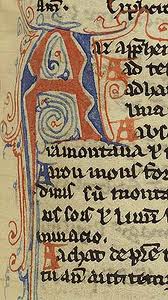It’s been an up and down week with my writing. I’ve managed to slog through some pages, but haven’t felt ‘in the groove’ at all. Maybe when this thunderstormy heat wave passes and my propensity for migraines brought on by weird weather patterns is no longer challenged, I’ll get back in gear. Or maybe it’s just a slump, and as usual, things will get better if I just keep showing up. Probably the latter. Speaking of “just showing up” here’s a link to my oft-viewed TED Talk by Elizabeth Gilbert “Your elusive creative genius.” I highly recommend viewing this when the writing is at a standstill. I may be watching it today! Here’s the TED Talk summary: Elizabeth Gilbert muses on the impossible things we expect from artists and geniuses — and shares the radical idea that, instead of the rare person “being” a genius, all of us “have” a genius. It’s a funny, personal and surprisingly moving talk.
The following link to Kristi Holl’s Blog “Warning: Do You Know Where You Are?” takes a different slant on reaching your goals.
Here’s an excerpt:
“No matter what type of map you use (Google map, MapQuest, GPS or the old-fashioned paper kind), you first have to know where you are right now. Knowing your destination won’t help one iota if you don’t know your present location.
And why don’t we writers know where we are at this moment? Are we lost? Not really. More like deluded. We deceive ourselves about our true locations at the present time. (I do it too. We all do it.) And that’s one big reason why our “maps” don’t work and don’t get us to our destinations.”
I have soooo been there–and, no doubt, will be there again.
Finally, here is a link and some information about a kidlit writing contest, deadline July.
Current Contest at Children’s Writer: Kindergarten Story: Exploration!
http://www.thechildrenswriter.com/af627/
Specifications: Fiction about exploration for kindergarteners, up to 150 words. The story should be appropriate to children 5 to 7 learning to read on their own. The theme of exploration could be set at home, down the block, at school, on vacation, in books: Use your imagination! The story should be fun, colorful, use well-targeted words, and have special interest for the age group. Do not write too high for this readership. Know what a five- or seven-year-old can and cannot read. Originality and the overall quality of writing will also be considered. Publishability is the ultimate criterion.
Entries must be received by July 12, 2013. The first contest entry is free to Children’s Writer subscribers who include their account number on page one of their manuscript. All others pay an entry fee of $15, which includes an 8-month subscription. Winners will be announced in the October 2013 issue. Prizes: $500 for first place plus publication in Children’s Writer, $250 for second place, and $100 for third, fourth, and fifth places.
The contest rules are important. Please read them carefully.
Love to know what you think of the TED Talk or Kristi’s blog, or if you’re thinking of entering the contest. Have a great weekend!
